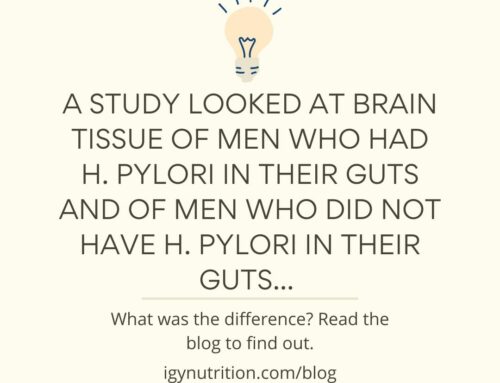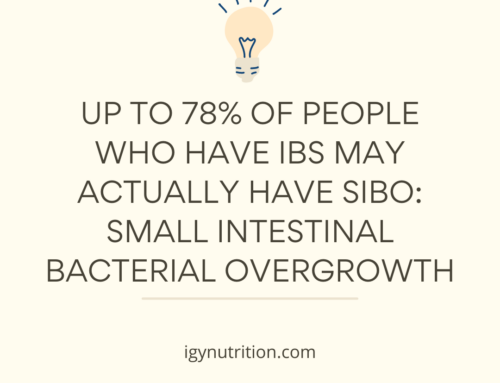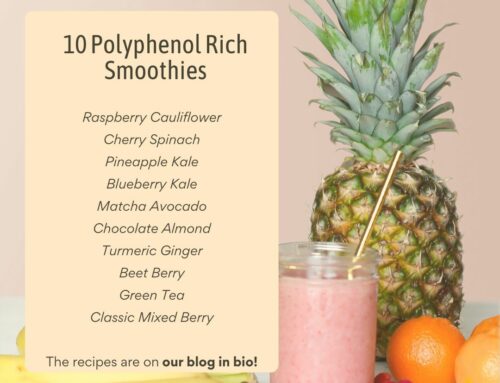Ask around, and you might find that people believe they are stuck with the metabolism they “have naturally.” They might feel out of energy and struggle with their weight but say, “my whole family’s that way,” or “I can’t lose weight. I have a naturally slow metabolism.”
In our last blog, we met the captain of your metabolism – the thyroid gland – and learned how to eat to support it. Today, we’ll learn how to increase your consumption of nutrients that bolster thyroid function.
Recap: The Thyroid Gland
Your metabolism is controlled by a gland in your neck called the thyroid.
Your thyroid sets the pace of your metabolism. The thyroid must set the right pace so the body can expend energy properly. It accomplishes that by sending chemical messengers called thyroid hormones to every cell in your body to regulate the cells’ energy use.
If the gland deploys an excess of thyroid hormones, the body will expend too much energy, resulting in a sped-up metabolism. If the thyroid does not deploy enough thyroid hormones, the body will not expend enough energy, resulting in a too-slow metabolism.
When the thyroid is not functioning correctly, it can lead to various problems, including weight gain or loss, fatigue, anxiety, and depression. Check out our last blog to learn about the consequences of dysregulated thyroid hormones.
If you believe you have a thyroid issue, make an appointment with an endocrinologist or primary care doctor in your area as soon as possible. If you do not have access to medical care, you can test for hypothyroidism for under $100 at your local Quest Labs by ordering TSH, Free T3, and Free T4. Try your best to consult a doctor if these results are abnormal, as hypothyroidism typically requires medication for treatment.
Moral of the story: a properly regulated thyroid is integral to a healthy body. Let’s look at how nutrient intake can help you support your thyroid (and, thereby, your metabolism).
Nutrients that Support the Thyroid
The thyroid depends on vitamins and amino acids to manufacture thyroid hormones, including:
- Iodine
- Selenium
- L-tyrosine
- Zinc
- Iron
*Chemistry tangent:* thyroid hormones are made from tyrosine and iodine. These vitamins are the literal building blocks for your hormones. That’s why iodine deficiency is a common cause of hypothyroidism. Let’s look at where and how you can consume enough of these vital nutrients.
Making it Easy
Here at IgY nutrition, we like to make things easy. The easiest way to get enough thyroid-supporting nutrients per week is as follows:
- Sprinkle ½ of a teaspoon of iodized salt on your food every day (iodine)
- Eat ⅔ of a cup of brazil nuts per week (selenium)
- Two brazil nuts alone contain the daily value of selenium
- Eat five 6 oz servings of meat or 5 cups of tofu per week (L-tyrosine)
- Take a multivitamin that contains zinc and iron every day (zinc, iron, other essential nutrients)
In case you’re not into meat and brazil nuts, we listed five foods that help you meet the intake requirements. You can use an app like Cronometer to ensure you get enough of each vitamin or amino acid.
Iodine:
- Iodized salt
- Salmon
- Oysters
- Eggs
- Dairy products
Selenium:
- Brazil nuts
- Eggs
- Tuna
- Pork chop
- Tofu
L-tyrosine:
- Chicken
- Beef
- Pork
- Tofu
- Fish
Iron
- Fortified cereals
- Red meat
- Pumpkin seeds
- Oysters
- Dried apricots
Zinc
- Red meat
- Chicken
- Fish
- Beans
- Nuts
If you have gut issues of any sort – whether it’s dysbiosis, slowed or sped-up motility, or a simple lack of enzymes – your gut may struggle to absorb vitamins thoroughly.
If this lack of vitamin absorption persists, you may develop vitamin deficiencies – which can, in turn, lead to a lack of thyroid hormones. These deficiencies may result in hypothyroidism or sub-optimal thyroid function for your age group. You can find out if you’re deficient by ordering blood tests.
Put simply: proper gut health is critical to adequate vitamin absorption, which is crucial to thyroid hormone production. If you struggle with vitamin absorption, consider taking supplements that contain thyroid-supporting nutrients.
In Sum: Proper Digestion for Regulated Metabolism
In short, a well-regulated metabolism is vital to a healthy life. A too-fast metabolism may be just as detrimental to health as a too-slow one.
The thyroid regulates the body’s metabolic rate. And since the thyroid depends on adequate vitamin absorption to do its job, a healthy gut is critical to its functioning.
For a healthy metabolism, start with your diet. Prioritize your consumption of L-tyrosine, iodine, and selenium. Zinc, iron, and B vitamins can be helpful adjuncts. Take a multivitamin and use iodized salt if you struggle to eat enough of these nutrients.
If you suspect that you have a thyroid issue, check out Izabella Wentz’s website to learn more. Make an appointment with a primary care doctor or endocrinologist in your area and screen for vitamin deficiencies.
Tag us in photos of your digestive wellness journey on Instagram @igynutrition. Thanks for joining us today!
References
- Zimmermann MB, Boelaert K. Iodine deficiency and thyroid disorders. Lancet Diabetes Endocrinol. 2015 Apr;3(4):286-95. doi: 10.1016/S2213-8587(14)70225-6. Epub 2015 Jan 13. PMID: 25591468. https://pubmed.ncbi.nlm.nih.gov/25591468/#:~:text=Severe%20iodine%20deficiency%20causes%20goitre,enable%20production%20of%20thyroid%20hormone.
- Arthur JR, Nicol F, Beckett GJ. The role of selenium in thyroid hormone metabolism and effects of selenium deficiency on thyroid hormone and iodine metabolism. Biol Trace Elem Res. 1992 Sep;34(3):321-5. doi: 10.1007/BF02783686. PMID: 1384621. https://pubmed.ncbi.nlm.nih.gov/1384621/#:~:text=Selenium%20deficiency%20impairs%20thyroid%20hormone,’%2D5%20triiodothyronine%20(T3).
- Luo J, Wang X, Yuan L, Guo L. Iron Deficiency, a Risk Factor of Thyroid Disorders in Reproductive-Age and Pregnant Women: A Systematic Review and Meta-Analysis. Front Endocrinol (Lausanne). 2021 Feb 25;12:629831. doi: 10.3389/fendo.2021.629831. PMID: 33716980; PMCID: PMC7947868. https://pubmed.ncbi.nlm.nih.gov/33716980/
- Aktaş HŞ. Vitamin B12 and Vitamin D Levels in Patients with Autoimmune Hypothyroidism and Their Correlation with Anti-Thyroid Peroxidase Antibodies. Med Princ Pract. 2020;29(4):364-370. doi: 10.1159/000505094. Epub 2019 Nov 29. PMID: 31779003; PMCID: PMC7445676. https://pubmed.ncbi.nlm.nih.gov/31779003/#:~:text=Results%3A%20We%20found%20that%20vit,TPO%20antibodies%20in%20these%20patients.
- https://www.mountsinai.org/health-library/condition/hypothyroidism




